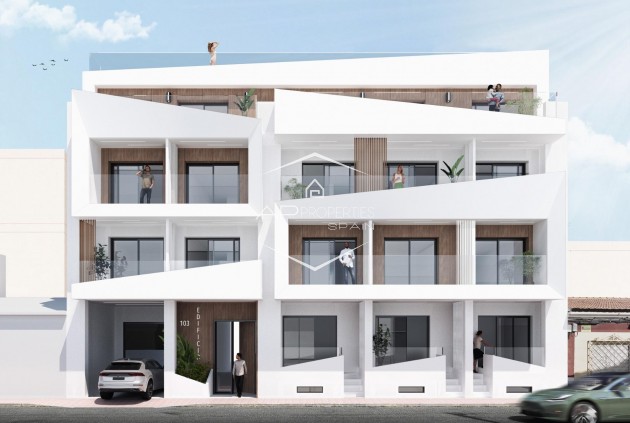
Tourist rentals on the Costa: opportunity or risk for property values?
The sun-drenched Costa Blanca and Costa Cálida have been popular regions for foreign property buyers for years. Many people buy homes there for their own use, but also as an investment through tourist rentals. However, this rental market is under pressure. New regulations, complaints from residents, and decisions by homeowners' associations (VvEs) are increasingly prohibiting tourist rentals within residential complexes.
This raises an important question: is tourist rentals still a real opportunity, or is it gradually becoming a risk to the value of your property? In this blog post, we analyze the current situation on the Costa Blanca and Costa Cálida, and what this means for owners, investors, and the local economy.
Why tourist rentals are under pressure
The growing criticism of tourist rentals comes from several quarters:
- Nuisance for permanent residents In many residential complexes, the influx of short-term renters leads to nuisance: noise, full swimming pools, a lack of parking spaces and a loss of community feeling.
- Competition for hotels Local hoteliers see tourist rentals as unfair competition, especially when the rentals are done without the required permits or taxes.
- Rising property prices for locals In popular coastal areas, properties are often bought up by foreign investors, leading to a shortage of affordable housing for local residents.
- Political pressure: The Spanish government and regional authorities (such as the Valencian Community and Murcia) are implementing increasingly strict regulations to control the phenomenon. These include registration requirements, limits on rental days, and even moratoria on new rental licenses.
The role of the Owners' Association (VvE)
A key player in this story is the VvE , which in Spain has legal authority to prohibit or restrict tourist rentals within the building or urbanization .
Under Spanish law, property owners can decide by majority vote whether or not to allow tourist rentals. Many communities use this as an excuse to ban rentals—often for self-preservation.
However, it's important that owners are also aware of the potential negative consequences of such a ban . Fewer tourist rentals not only mean more peace and quiet, but also less tourism—and therefore less income and employment for the local population .
Shops, restaurants, bars, taxis, and service providers all depend on a healthy flow of tourists. Fewer guests means lower revenue, which can ultimately harm the region's appeal.
What about the real estate value?
This is the big question for many (future) owners.
Real estate with rental potential is becoming rarer – and therefore more valuable.
In regions where tourist rentals are prohibited, a shortage of properties where they are still permitted automatically arises. These properties become more attractive to investors, driving up prices.
Real estate without a rental permit is becoming less attractive.
A property that's not allowed to be rented out is simply less attractive to many buyers. This can lead to price pressure or longer selling times . Especially in urban areas where multiple owners want to sell, there's a risk of oversupply.
Impact on existing owners
As an owner, you should also be aware that a ban on tourist rentals can negatively impact the value of your property . The market is becoming more selective. A property that no longer generates a return becomes less attractive to potential buyers.
Therefore, when considering community sentiment, it is crucial to consider not only the short term but also the economic reality and the impact on your own investment .
What do investors do?
Investors are adjusting their strategies. We see three major trends:
- Focus on individual homes outside urbanizations. There you have more freedom and often fewer neighbors who can object.
- Investing in regions with clear regulations, such as parts of Alicante or Cartagena, where rental policies are transparent and stable.
- Shifting focus to long-term rentals Some investors are switching to longer-term rentals (3–11 months), for example to digital nomads or winter residents.
Conclusion: Opportunity or crisis?
The ban on tourist rentals isn't a disaster, but a shift in the market . Real estate remains valuable, especially in popular coastal areas, but its potential return is changing.
For investors it means:
- More due diligence when purchasing.
- More focus on location and type of property.
- Possibly less passive income unless you choose wisely.
For existing owners it means:
- More peace in their community.
- But also the risk that their property will become less valuable on the market.
And for the regions themselves? Less tourism not only means less disruption, but also fewer jobs, less consumption, and potentially a decline in economic vitality .
The future of tourist rentals on the Costa Blanca and Costa Cálida is at a crossroads. The challenge is to find the right balance between livability and economic sustainability.
Need guidance? Get advice from experts
Do you want to invest in Spanish real estate, or do you already own a home and are you wondering what these developments mean for you?
AP Properties Spain specializes in buying and selling real estate on the Costa Blanca and Costa Cálida. We closely monitor local regulations and help you develop a strategy that aligns with your goals—whether that's personal use, rental, or a smart investment.
Contact us today for a no-obligation consultation. Together, we'll turn your Spanish real estate dream into a lasting reality.
























